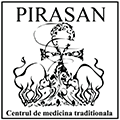Usually, bronchitis is caused by a viral agent. It develops by an inflammation of the mucous membrane lining the bronchi (airways carrying the inhaled air to the lungs). In its acute form, it occurs after an infection of the respiratory tract or following a respiratory virosis or sinus infection that has not been properly treated. Chronic forms of bronchitis are recurrent; the symptoms develop over long periods of time. There is a higher incidence of chronic bronchitis among smokers.
Acute Brnchitis
- dry cough or productive cough persisting for 2-3 weeks (secreted phlegm may be transparent, white, yellowish or green; where green, the infection is caused by a bacteria)
- febrile state
- shivers
- muscle pains
- nasal congestion
- tonsil inflammation
- wheezing breath
- fatigue
- chest pains caused by cough episodes
Chronic Bronchitis
- symptomatology similar to acute bronchitis; yet coughing persists for long periods of time – over 4 weeks; coughing is stronger in the morning and heavier with smokers; moreover, it may even last up to several months
- diagnosis is put where coughing and specific symptoms have persisted for at least 2 months
- recurring episodes of cold or respiratory viroses especially during the cold season, followed by heavier coughing and expectoration
Causes
The infectious process is caused by viral agents. However, in particular cases, the infection may be caused by bacteria, too. Such be the case, the treatment will be more complex. Noninfectious and especially chronic forms of bronchitis occur where there is a more vulnerable bronchial membrane, made so by exposure to chemical agents, polluting agents or smoke. Inflammation of the mucous membrane may also be caused by inhalation of gastric juices (as is the case in gastroesophageal reflux syndrome). In industrialized and urban areas there has been recorded a higher incidence of bronchitis.
Complications
Unless the infectious process is arrested, and the infection spreads to the lungs, bronchitis threats to degenerate into more complex conditions such as pneumonia , pulmonary emphysema, pneumosclerosis, bronchiecstases, chronic respiratory insufficiency, hypoxic encephalopathy, secondary poliglobulia and chronic obstructive pulmonary disease.
Treatment
In the treatment of bronchitis by traditional therapies, acupuncture and medicinal herb extracts improve pulmonary activity; they release airways by curing the inflammations of the bronchial mucous membrane and by eliminating the excess mucus. The muscles involved in the respiratory processes are tonified and blood circulation in the pulmonary area is normalized, so that cell and tissue oxygenation should be done within optimum parameters. The respective procedures reduce the inflammatory process and facilitate the regeneration of the injured tissues. In addition to that, the medicinal herb extracts improve immunity of the pulmonary area and of the upper airways.

